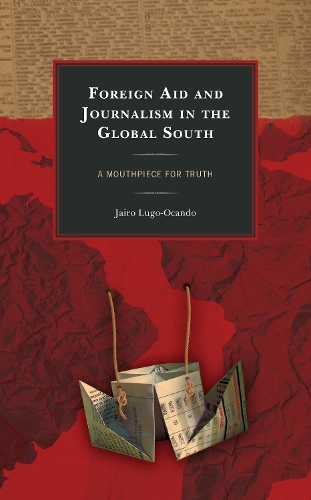
Foreign Aid and Journalism in the Global South: A Mouthpiece for Truth
(Hardback)
Available Formats
Publishing Details
Foreign Aid and Journalism in the Global South: A Mouthpiece for Truth
By (Author) Jairo Lugo-Ocando
Bloomsbury Publishing PLC
Lexington Books
28th September 2020
United States
Classifications
Professional and Scholarly
Non Fiction
Media studies: journalism
History of the Americas
International relations
079.1724
Physical Properties
Hardback
214
Width 161mm, Height 229mm, Spine 22mm
508g
Description
Foreign Aid and Journalism in the Global South: A Mouthpiece for Truth examines the way in which foreign aid has shaped professional ideologies of journalism as part of systematic and orchestrated efforts since the beginning of the twentieth century to shape journalism as a political institution of the Global South. Foreign aid pushed for cultural convergence around a set of ideologies as a way of exporting ideology and expanding markets, reflecting the market society along with the expansion of U.S. power and culture across the globe. Jairo Lugo-Ocando argues that these policies were not confined to the Cold War and were not a purely modern phenomenon; todays journalism grammar was not invented in one place and spread to the rest, but was instead a forced colonial and post-colonial nation-building exercise that reflected both imposition and contestation to these attempts. As a result, Lugo-Ocando claims, journalism grammar and ideology differ between societies in the Global South, regardless of claims of universality. Scholars of journalism, international relations, Latin American Studies, and history will find this book particularly useful.
Reviews
This book is a must-read for anyone interested in the developing dynamics of journalism in the Global South. Not only does Jairo Lugo-Ocando cleverly historicize regionally-focused journalistic developments and discourses but he also presents fresh ethical and conceptual critiques that underline the troubling relationship between journalism and foreign aid. -- Bruce Mutsvairo, Auburn University
Jairo Lugo-Ocandos book makes an excellent contribution to the burgeoning studies of global journalism. The book focuses on critiquing Western models of journalism and practices which have been ideologically driven by the idea that journalism was a sole product of the West. Specifically using the example of foreign aid for media development, Jairo critiques Western view towards southern journalists as a hegemonic exercise of power. Lugo-Ocando takes a path-breaking approach to suggest that journalism has played a distinct role in postcolonial and non-Western societies in contributing to nation-building and that practices of journalism are an outcome of class struggle and nation-individual tensions unique to particular regions. I highly recommend this book for students and researchers interested in the history of international journalism, journalism studies, and international relations. -- Shakuntala Rao, State University of New York, Plattsburgh
Author Bio
Jairo Lugo-Ocando is director of executive and graduate education and professor in residence at Northwestern University in Qatar.
